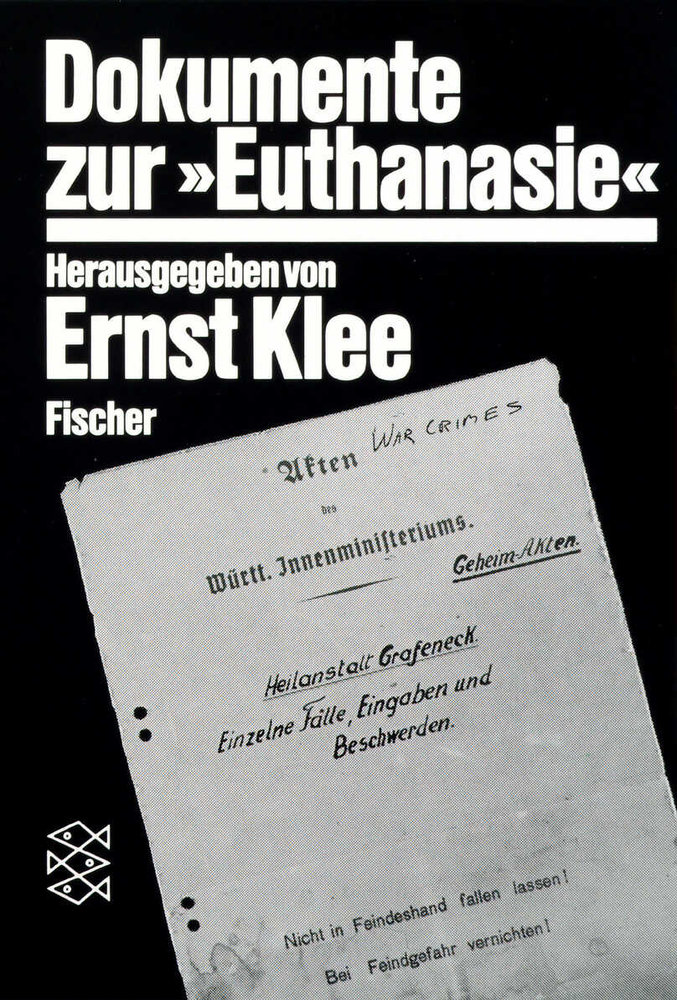Nach der Veröffentlichung des inzwischen weithin bekannten Buches von Ernst Klee '»Euthanasie« im NS-Staat. Die »Vernichtung lebensunwerten Lebens«' (S. Fischer Verlag, 1983) hielten es Autor und Verlag für notwendig, angesichts der Fülle des Materials einen separat benutzbaren Dokumentenband herauszugeben. Dahinter stand die Absicht, Texte, die im oben genannten Buch nur knapp zitiert werden konnten, möglichst ungekürzt dem Publikum vorzulegen. Inzwischen ist es Ernst Klee gelungen, weitere Materialien zutage zu fördern, mit denen niemand mehr gerechnet hat oder rechnen wollte. Er konnte teilweise nahezu vollständige, nach dem Krieg als verschollen betrachtete oder versteckte Aktenbestände durchsehen, die brisante schriftliche Quellen und sogar Fotomaterialien enthalten. Der vorliegende Band präsentiert Dokumente, die im ersten Band nur auszugsweise zitiert werden konnten, und Texte und Fotos, die hier erstmals veröffentlicht bzw. - soweit sie vor Jahrzehnten in anderem Zusammenhang schon einmal publiziert worden sind - der Vergessenheit entrissen werden. Erschreckend ist nicht allein, was seinerzeit in Kliniken, »Heil«- und Vergasungsanstalten geschehen ist. Erschreckend ist auch die Tatsache, daß Hunderte freiwillig mitmachten, den Massenmord organisierten und dann verübten, daß Abertausende davon wußten und nichts sagten. Mehr als eine Generation danach stehen wir erst am Anfang der notwendigen Trauerarbeit.



